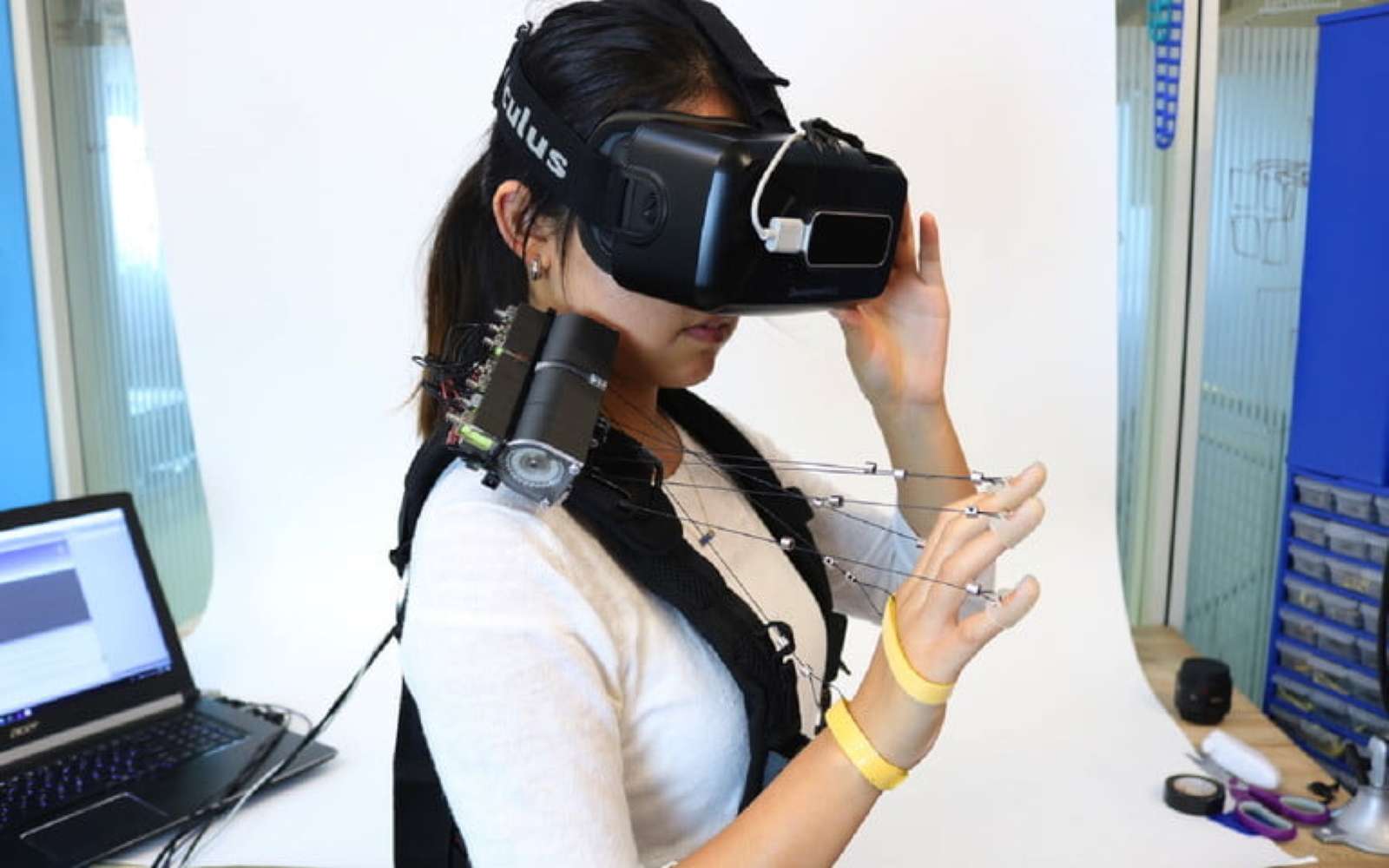Rather than using gloves to reproduce sensations in virtual reality, American researchers have imagined a wiring system transforming the user into a real puppet.
The applications of virtual reality no longer have to demonstrate their potential, but they are still looking for a sense, that of touch. Numerous experiments have been carried out for years to correctly restore the sensations of palpation of a virtual object that we take in hand. If there has been great progress, in addition to vibrations , small electric shocks, or exoskeletons , for the moment delivering the sensations of touch like following with the hand the contours of a statue, for example, still remains one of the great challenges of virtual reality .
It is on this issue that a team of researchers from the Future Interfaces Group laboratory at Carnegie Mellon University in Pittsburgh in the United States has worked . Scientists have developed a prototype called Wireality . The system is original, since the joints of the user’s hand are connected for fine wiring. These cables are connected to a box fixed on the shoulder and they are unwound or wound up according to the movements to be reproduced, via small fishing reels.

A realistic sense of touch for 50 dollars
In an VR space, if the person touches an object, or a wall with certain parts of the hand, the cables corresponding to the joints concerned will be wound so as to finely reproduce the sensation of the shape of the element touched , by example. It can be a matter of sliding your hand over a balustrade , following the contours of a sculpture or even lifting a virtual object that is supposed to weigh heavy. Equipped with the apparatus, the user can in fact resemble a puppet whose movements are controlled by the puppeteer.
If the process remains complex with its wiring system, in addition to delivering realistic sensations , it is formidable economically. Thus, according to the researchers, the entire equipment costs only about 50 dollars. A rate that could democratize this type of technology, the most efficient models of which are usually overpriced and intended for professional applications, such as surgery , for example.